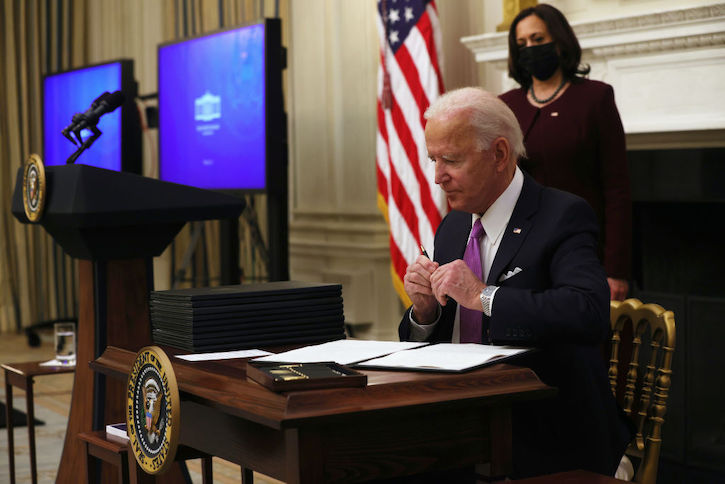Wednesday, just hours after being sworn in, President Joe Biden signed an executive order reversing the travel ban Donald Trump placed on 13 countries. The controversial ban was known as the Muslim ban, due to its targeting of Muslim-majority countries, and according to White House Press Secretary Jen Psaki, was “a policy rooted in religious animus and xenophobia.”
The original ban went into effect Jan. 27, 2017 and included Somalia, Libya, Iran, Yemen, Syria, North Korea and Venezuela. It was expanded on Feb. 22, 2020 to include Nigeria, Sudan, Eritrea, Tanzania, Myanmar, and Kyrgyzstan.
The executive order was one of 15 Biden signed on his first day as president to replace policies put in place by his predecessor, which he says “have jeopardized our global network of alliances and partnerships and are a moral blight that has dulled the power of our example the world over. And they have separated loved ones, inflicting pain that will ripple for years to come. They are just plain wrong.”
Rather than banning non-citizens from certain countries, President Biden promised to improve the screening and vetting processes of incoming visitors in part through the improvement of information sharing policies with foreign governments.
The bans have led to thousands of families to be separated and kept apart. Under the order, the State Department will restart processing visa applications for people from the previously banned countries.
President Biden has also asked the State Department to find ways to aid families who have been barred from entering the United States under the ban, and ways to address the harm caused.
